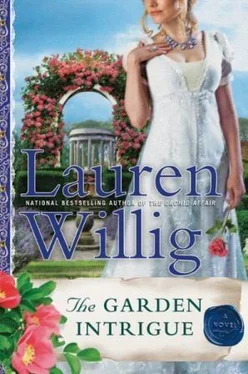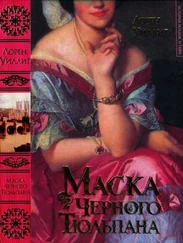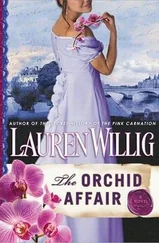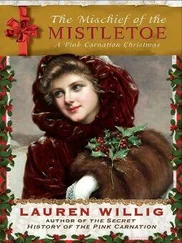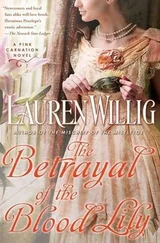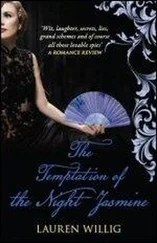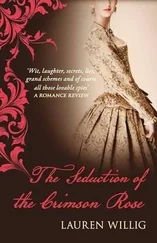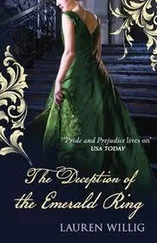The scratching stopped. “Pardon?”
“Is it too much to ask for a humble poet to find a bit of peace to court the muse in private?” Augustus inquired mournfully. “Oh, the world is too much with us! Chattering and clattering, we lay waste our talents, consigning our patrimony of poetry to the wasted wind of the idle hour. Oh, woe! Woe it is to be—me.”
He broke off as he heard the floorboards creak in rapid retreat.
Horace leaned forward. “Was that—?” he hissed.
“Balcourt’s mistress.”
“Oh.” Horace shrugged off the intrusion. Mistresses were an inconsequential part of urban existence, like tavern owners or those annoying little people who collected bills. “As I was saying, I was at Saint-Cloud, when—”
Augustus cut him off. “Balcourt’s mistress is an informer of the Ministry of Police.”
It took Horace a moment for the words to register. “Is she?” He seemed more intrigued than alarmed.
De Lilly’s insouciance set Augustus’s teeth on edge. “Madame Perdite is just one of thousands, but any one of those, no matter how insignificant they may seem, can be your downfall. A landlady, a chambermaid, the boy who holds your horse. Fouché has half of Paris in his pay.” An exaggeration, but not by much. “Say nothing in front of anyone, not even the servants. Particularly not the servants. Do you understand?”
Horace nodded, but Augustus could see he didn’t understand, not viscerally, not in that place in one’s gut that shouted danger long before the conscious senses perceived a threat. Horace had been a boy during the Terror, an adolescent in the safety of London. He had no memory of the stench of blood and sweat, the buzzing of the blood-gorged flies in the Place de la Concorde; he had never spent a night in the damp-walled hospitality of the Conciergerie, never heard the screams of a man being put to the question as he moved from begging for life to praying for death. The prisons of Paris were just names to him, names and blank facades; he had no real understanding of the true nature of the terrors within.
This was what happened of hiring boys who were still wet behind the ears and sending them out into the field with nothing more than a few vague instructions and a slightly outdated map of central Paris.
Augustus preferred not to address the fact that he had been equally amateur when William Wickham had first recruited him for covert operations, fresh out of Cambridge. At the time, he had been an aspiring poet by vocation, a fledgling clergyman by necessity, resigned to the prospect of taking a parish and sandwiching verse between his sermons. His encounter with Wickham had changed all that.
Twelve years later, Augustus could hardly imagine having been that young or that naïve. That young, that naïve, and that eager.
Augustus cocked his head, listening. After this many years in the field, he could discern the subtleties of a silence, the way a painter could distinguish between the various forms of black. There was no listening presence from behind the door; he would have known her from the breathing.
Augustus turned back to Horace. “She’s gone,” he said. “What do you know?”
Leaning forward, Horace braced his palms on the knees of his breeches. His hands were too large for his frame, as if he hadn’t quite yet grown into his height. “The First Consul summoned Admiral Decres to Saint-Cloud. It was a warm day, so he left the window ajar. I,” he added modestly, “was beneath it.”
“What did you hear?”
“The fleet. They’re readying it.”
“Which fleet?” There was more than one.
“All of them!” Horace said excitedly. “The plan, it has been approved at last. I heard it direct from the First Consul’s lips. Save just one thing, all is readiness.”
Augustus didn’t need to ask, but he did. “For?”
“The First Consul, he is giving the orders for the invasion of England!”
“Whither wend ye, sir?” Cytherea cried,
“And why hast thou come for me?
To drag me, O, so far from home!
Along the wine dark sea!”
—Augustus Whittlesby,
The Perils of the Pulchritudinous Princess of the Azure Toes, Canto XII, 28–31
“You really must stop poking at him like that,” said Jane, as the poet made his offended way out of the room.
“I wasn’t poking,” said Emma.
Her friend gave her a look. Jane had a way with looks.
“Well, maybe just a little,” Emma admitted. “But when he perpetrates poems like that, it’s just too tempting not to poke.”
Jane continued to look, her gray eyes amused.
“What?” said Emma defensively.
“There are better ways to get someone’s attention.”
Emma chose to ignore that. “All I did was offer a little helpful criticism.”
“In the middle of his reading,” pointed out Jane.
“Was it the middle? It’s so hard to tell when it goes on for forty-five cantos.”
“Twenty-two,” corrected Jane. She would know. Whittlesby had dedicated all of them to her, his Princess of the Pulchritudinous Toes. “Haven’t you ever thought of just conducting a conversation with him rather than embarrassing him in public? It might better serve your cause.”
Emma wrinkled her nose at her friend. “I don’t have a cause.”
Jane adjusted an already perfectly aligned flounce. “You go to every single one of his readings. Poetic devotion?”
“Consider it a well-developed sense of the absurd?” Emma suggested. “For farce, he’s better than the commedia dell’arte.”
“Almost anything is better than the commedia dell’arte,” said Jane. As Emma had learned, her friend was something of a snob when it came to theatre. It was one of the few flaws in an otherwise perfect personality. Fortunately, Emma had caught Jane reading gothic novels, or else they might never have become friends. “Care to try again?”
“It’s not like that,” said Emma. “Well, it’s not! It’s like…pining after an actor. You don’t mean anything to come of it, but he does look so very nice in his pantaloons.”
“Mmm,” said Jane. “Does he now?”
Emma felt her cheeks flush. “That was meant as a general he, not this he in particular. Although, yes,” she admitted, “he does look very good in his breeches. It’s his one redeeming quality. That and his hair. He has very nice hair. And fine eyes. Oh, stop!”
“Hmm?” said Jane, but the lace of her fan couldn’t quite hide her smile. “Did I do anything?”
“You know what you did,” said Emma severely. “It’s really just a diversion. Something safe and harmless.”
There was nothing like an affair, her friends had told her years ago. How else was a young widow to divert herself? She had tried it and found it wanting. Now all she wanted was a little amusement, just a little game to play, silly and safe.
What could be sillier or safer that Augustus Whittlesby?
It hardly even counted as a tendre . It was just a diversion.
“If you say so,” said Jane, in that maddening way of hers. “Aren’t you to be writing your own magnum opus soon? That ought to engender some artistic fellow feeling with Mr. Whittlesby.”
“Magnum opus?”
“I heard you were commissioned to contrive a play, for a party at Malmaison.”
“Oh, that.” Emma shook her head in dismissal. “Not a play, a masque, just a short piece, more spectacle than verse. Madame Bonaparte suggested it. I told her I would think about it.”
“I won’t accept no,” Madame Bonaparte had said in her lingering Creole drawl, tapping Emma’s cheek in that way she had, that way that made her feel fifteen again, a schoolgirl at Madame Campan’s academy for young ladies, meeting Hortense’s mother for the first time, surrounded by the scent of roses and the warmth of Madame Bonaparte’s smile.
Читать дальше
